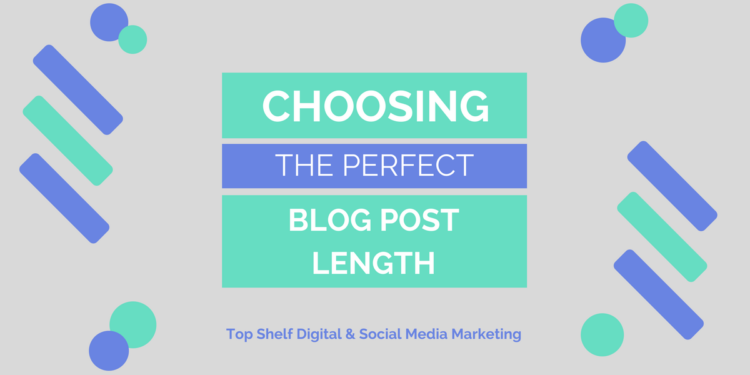
Clients often ask us what’s the perfect blog length as if there’s a one-size-fits-all solution. The truth is quality is much more important that quantity when it comes to content marketing and there are lots of factors that go into the length of a blog post including your industry, the complexity of your topic, and how much rich media you’re including.
That’s not to say there aren’t a few general rules of thumb to keep in mind when you’re strategizing your blog post length. In fact, there’s lots of advice when it comes to content creation: Influence & Co. analyzed more than 4 million pieces of content for its “The State of Digital Media” report; Buffer Social updates its Ideal Character Count infographic annually; and Snap gives in-depth recommendations about blog lengths. We’ve reviewed some of the most recent research on blog lengths and compiled our favorite five tips for success.
Five Blog Length Tips
- More important that word count is time spent on page, and ideally you want readers to spend at least 7 minutes on each page (Snap Agency)
- Write content that appeals to your target audience and give them information they want to read – be helpful, insightful, humorous
- You shouldn’t be afraid of writing “below the fold” but keep in mind your have about 9 seconds to draw your reader in (CopyPress)
- At the very minimum, make posts at least 300 words so they aren’t labeled as “thin content” by Google’s algorithm (Bruce Clay)
- 600-800 words is ideal for substantial exploration of ideas with minimal time commitment (Influence & Co.)
Snap’s Strategies to Amp Up on Bigger (More In-Depth) Blog Posts:
Overall, it’s important to be consistent with your content and diligent with your topic creation. I’ll share some of what she shares: Start with the big idea sections, think about why anybody should care about the subject and why is your particular experience with this subject interesting? Share stories!
To Sum It Up:
Year after year, research shows longer content is performing better overall than shorter content. Word count is less important than time spent on page, which Google’s algorithm takes into account for page rank. The biggest key to success for content creators is focusing on quality rather than quantity. If you’re overwhelmed by the thought of having to choose a topic and draft a blog that follows SEO best practices, check out our content creation services.

